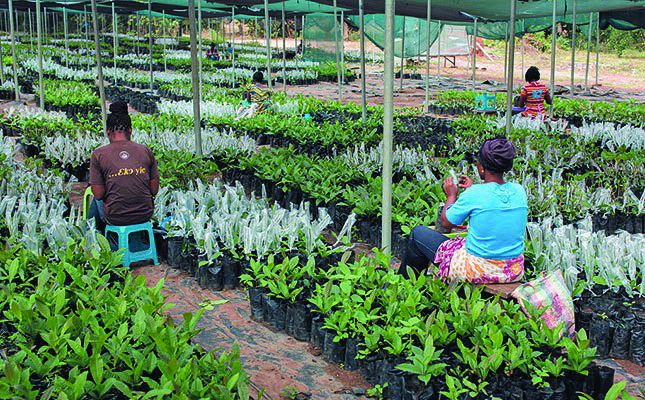
It was found, however, that female agricultural workers lacked access to basic services needed to live healthy lives, and “women are disproportionately harmed by climate change due to cultural and societal reasons”, according to a report in the February-March issue of The Ethical Corporation magazine.
According to the report, the UN Foundation would soon be launching a new set of commitments to women’s health in corporate supply chains, and had created a pooled corporate fund that invested in women-led organisations working in supply chain communities, along with an accountability platform to facilitate transparency in campaign organisations, business, as well as labour groups.
Female workers play a pivotal role in agricultural supply chains, as they are involved in all aspects of the industry, ranging from planting, growing and harvesting of crops, to processing, logistics and the selling of produce.
Although it is estimated that about 38% of workers in agricultural supply chains are female, this figure varies across regions, with the figure for sub-Saharan Africa, for example, being 50%, according to the FAO.
Despite this high prevalence of female agriculture workers, many do not have access to basic health services. “Most are low-wage smallholder farmers who are not covered by on-site employer health programmes,” the report said.
In an interview with The Ethical Corporation magazine, senior director of private sector strategy and engagement for the Universal Access Project at the UN Foundation, David Wofford, said companies and their suppliers could play a very significant role in improving women’s health, either directly or partnering with state-run health services.
As men migrated to urban areas in search of work, the proportion of women in the agricultural workforce was also increasing in many countries, including Colombia, Ecuador, Nepal and Bangladesh, the report said.
“If businesses don’t address the needs of female workers, they will have huge problems in the future. In addition, women spend the most money on the family’s health and children’s education, so companies have a huge opportunity to support climate resilience by investing in the health of female workers,” Wofford added.
The Ethical Corporation magazine report highlighted several incidences where corporates had taken action on the healthcare issues of their female workers, however.
One such case study was the R. Twining and Company, which was providing female tea workers in its Kenyan supply chain with reproductive health information, with 50 000 women across Kenya and India receiving access to essential health services and products.
When it came to climate resilience, however, the non-profit organisation Climate Resilience for All reported that women were disproportionately harmed by climate change, with many working outdoors and in dangerously hot indoor conditions.
In India, women were reporting health problems including year-round rashes, miscarriages, urinary tract infections, dizziness, as well as crop losses and resultant loss of income.













